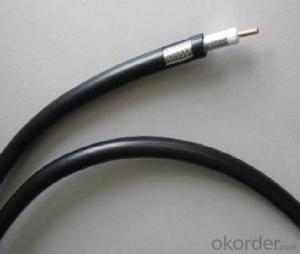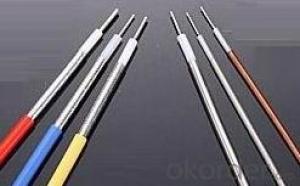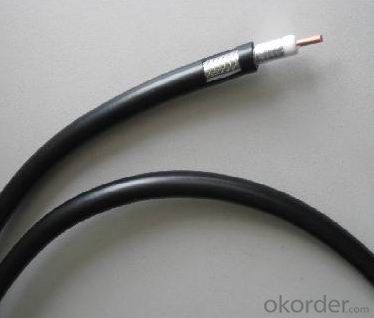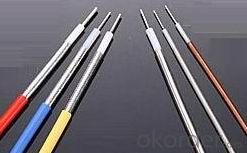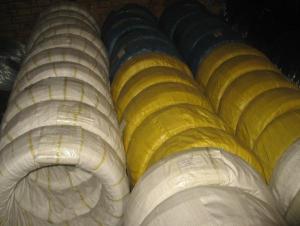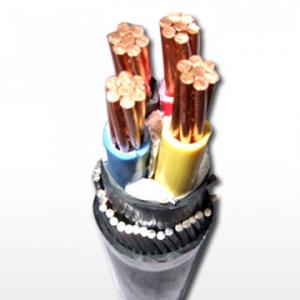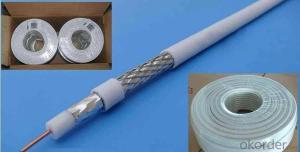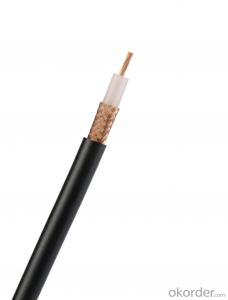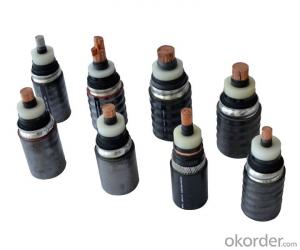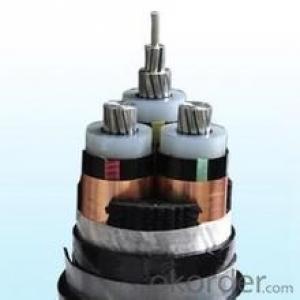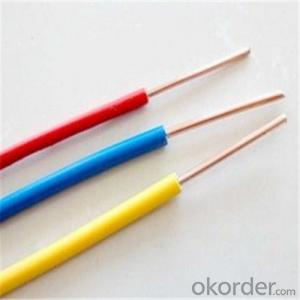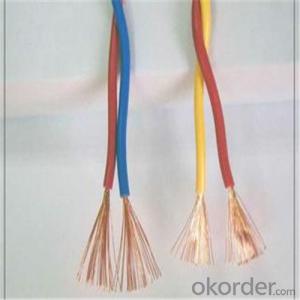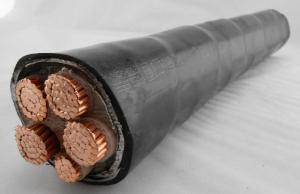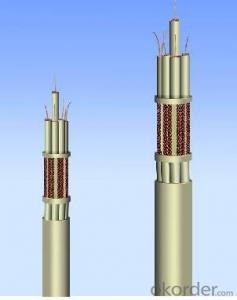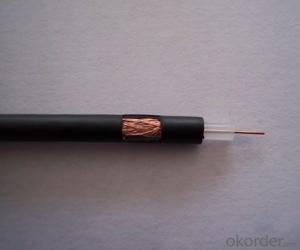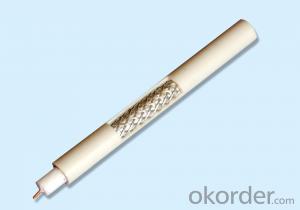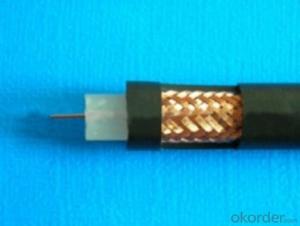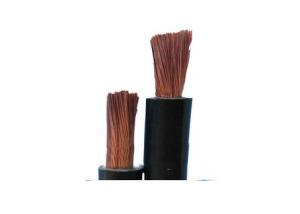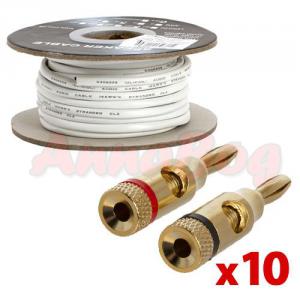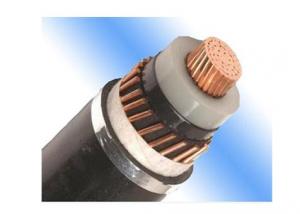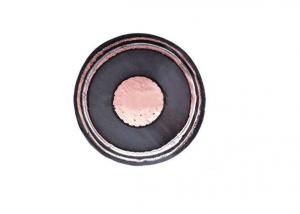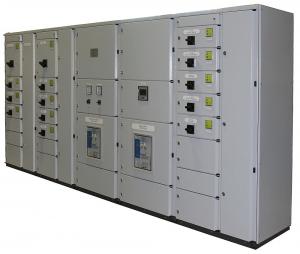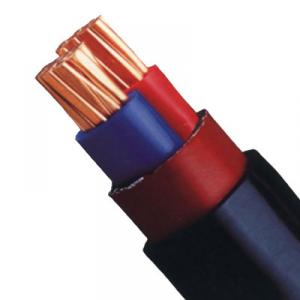SYWV-50 Series Vesicant Polyethylene Insulated Coaxial Cable
- Loading Port:
- Shanghai
- Payment Terms:
- TT OR LC
- Min Order Qty:
- 100 m
- Supply Capability:
- 100000 m/month
OKorder Service Pledge
OKorder Financial Service
You Might Also Like
Applications
The cable is mainly used in mobile communication and radio communications antenna feeder and ground base station antennas with jump line.
Cable using polyethylene foam insulation, the cable has low loss, low propagation delay, the minimum attenuation.
Structure | SYWV-50-3 | SYWV-50-4 | SYWV-50-5 | SYWV-50-7 | SYWV-50-9 | SYWV-50-10 |
Inner Conductor | 1.02 | 1.40 | 1.80 | 2.60 | 3.20 | 3.50 |
Insulation | 3.00 | 3.80 | 5.00 | 7.30 | 9.00 | 10.00 |
Outer Conductor | 3.70 | 4.50 | 5.70 | 8.30 | 10.00 | 11.00 |
Jacket | 5.00 | 6.10 | 7.50 | 10.20 | 12.40 | 13.30 |
Item | SYWV-50-3 | SYWV-50-4 | SYWV-50-5 | SYWV-50-7 | SYWV-50-9 | SYWV-50-10 | |
Dc Resistance | Inner Conductor | 24.0 | 12.1 | 6.92 | 3.34 | 2.21 | 1.82 |
| Outer Conductor | 10.5 | 16.3 | 13.5 | 11.5 | 8.3 | 7.0 | |
Insulation Resistance | 5000 | ||||||
Dielectric Strength kV | 1.6 | ||||||
Rate % | 81 | 82 | 82 | 81 | 81 | ||
ImpendanceΩ | 50±2 | ||||||
Standing wave ratio | ≤1.2 | ||||||
Sheath compression V(DC) | 1000 | 1000 | 2000 | 2500 | 3000 | 3000 | |
Spark voltageV(DC) | 5000 | 5000 | 5000 | 5000 | 5000 | 5000 | |
Capacitance pF/m | 81 | 81 | 81 | 81 | 81 | 81 | |
Frequency (MHz) | SYWV | SYWV | SYWV | SYWV | SYWV | SYWV |
150 | 13.0 | 10.0 | 7.8 | 5.8 | 4.7 | 4.16 |
200 | 14.7 | 11.5 | 9.1 | 6.7 | 5.5 | 4.83 |
280 | 17.2 | 12.9 | 10.2 | 8.8 | 6.6 | 5.80 |
350 | 19.5 | 16.5 | 12.2 | 8.9 | 7.5 | 6.60 |
400 | 21.5 | 17.5 | 13.0 | 9.6 | 7.9 | 7.00 |
800 | 30.2 | 23.6 | 18.9 | 14.1 | 11.7 | 10.80 |
900 | 31.8 | 24.5 | 20.3 | 14.8 | 12.2 | 11.30 |
1200 | 36.5 | 28.3 | 23.5 | 17.4 | 15.7 | 14.20 |
1500 | 41.0 | 33.5 | 25.0 | 19.2 | 17.5 | 15.60 |
1900 | 47.4 | 37.9 | 31.8 | 22.4 | 19.7 | 17.20 |
2000 | 49.5 | 38.7 | 32.3 | 24.2 | 20.3 | 17.80 |
2400 | 54.0 | 42.9 | 35.6 | 26.9 | 22.7 | 19.60 |
3000 | 61.5 | 48.6 | 40.9 | 30.7 | 25.9 | 22.50 |
- Q: How long is the service life of the cable?
- cable bridge and other pipes and other facilities shall not share a column (bracket)
- Q: There have been severe storms in my country Kenya and power lines have fallen and caused a lot of injuries, some fatal to pedestrians, motorists and others.I am sure if power lines were covered with rubber sheathing or some other apopropriatde material, there would be less likelihood of electrocution, serious injury, fire or property damage. I am a lay person in these matters so I am talking from what I have seen.Thanks in advance.
- Let's see... First of all ONLY high voltage power cables do not have protective polymer insulation. Low voltage cables, like the ones that bring outlet tension to homes do have an insulation, usually made of PVC, rubber, silicone and such. The large, 10000Volts, up to and over 200000 volts and so on do not for several reasons: 1. It would be impractical to make. For usual materials, like PVC the thickness of the insulation would be extreme (I think as thick as several centimeters) as to protect from such high voltages. Such insulations would make the cables break under their own weight. 2. The cables heat up really good under the enormous currents and voltages so the insulation plastic would be close to melting point all the time. 3. PVC is quite senzitive to weather curing. It becomes brittle and cracks if left under weather condition for several years so the insulation would still serve to no good. Furthermore, regulations regarding aerial wiring state that they should avoid crossing populated areas, roads, etc. unless absolutely necessary. Also, wires fallen on ground should definitely not be messed with. Furthermore, if high voltage cables were insulated, this would only serve ready made combustion materials for fires in case of short circuits and damages. I guess this takes care of your question...
- Q: trying to install garbage disposal and need it powered.I wanted to use this computer cable because the one that was with disposal got damaged.I would like to know how to determine which of the three (brown, blue, yellow) wires is ground. And for other two does it matter which way they are connected?Thanks in advance.
- Normal color code would be Brown - HOT, Blue - NEUTRAL, and Green/Yellow stripe - GROUND. I would be most comfortable using an ohmmeter to test continuity. If you have one, or have a friend with one, the Brown wire should go to the blade in the bottom of your photo, the blue to the blade at the top (the one that goes into the Wide slot in the receptacle) and the yellow to the round pin. But, if they don't go to those pins, just make a note of which pins they do go to and wire your disposer accordingly. In the absence of an ohmmeter or a friend, you might take the cable to a Radio Shack store or an automotive stereo installation shop. RS sells ohmmeters and may have a display unit you can use. The auto stereo shop will have one and know how to use it. As for whether it makes a difference how the hot and neutral wires are connected, the answer is that it absolutely does make a difference. Reversing them introduces a risk of electrical shock at worst, or at the least popping the GFCI breaker if there is one on that circuit. If there isn't one, you might want to consider installing one. It's cheap insurance. Good luck.
- Q: hey guys, i recently bought a new desktop computer however when i unpacked it and put it all together i discovered that i had not received a power cable for the tower. i discovered an old one in the mess that is my bottom drawer and was wandering does it matter what power cable is used for the tower? or are there different power cables for different PSU's?
- If the PSU is 800 watts or less, it likely doesn't matter. Look at the power cable and make sure it doesn't look particularly thin or flimsy. Most power cables are rated for 6A or more, which should be good for over 700 watts. Even most computers with 800 watt power supplies or more don't actually draw over 600 watts. I have seen power cables intended for laptops or monitors that were only rated for 2A. That's only good to 250watts, and a large desktop could easily draw more than that.
- Q: Now i get a message saying I have low system voltage. Is this gonna impair performance? Are there adapters for this?This is for a DESKTOP. Dell XPS.
- What? What are you saying? What processor uses a 10 pin power connector? You did 'say' CPU! (Central Processing Unit) Or do you mean the 20 pin ATX Motherboard connector? (AMD's use no power to processor connector. Intel Pentium 4 and UP, use a four pin power connector, from the power supply to the motherboard. (Mobo) Edit: Low System Voltage will start with causing weird things to happen. Then the computer motherboard power headers,(Connectors), will burn up. I suggest you turn this computer off, un-plug it, and email me.
- Q: im selling just the brick power cable. Is 50 dollars a good price?
- It seems like a bit much, I would go more for $20, considering the fact that it's only a power cable, not even a controller, and that it's not new. Hope this helped
- Q: So I was replacing the processor in my Laptop (Inspiron M5030) and I accidentally puled apart the cable connected to the power button. I couldn't see a clear way to connect it back, and I was wondering if there was any way I could do it myself or would I have to buy a new part?It's not the end you plug into the computer itself, it's attached to the end that's screwed into the computer.
- Hope this helps. Regards, GauravS
- Q: What kind of material does the power cable accessory contain?
- Power cable accessories are divided into several types, commonly used is heat shrink cable accessories, cold shrink cable accessories. (1KV, 10KV, 20KV, 35KV), several models (indoor, outdoor, intermediate connection), each containing the components are not the same, but there are all kinds of cold Heat shrinkable sleeve, heat shrinkable sleeve, heat shrinkable sleeve, heat shrinkable sleeve, heat shrinkable sleeve, heat shrinkable tube, sealant and other operating accessories.
- Q: how do i run my power cable wire through the firewall, to my battery in my 1995 Monte carlo?please help?
- Now djp answered this question correctly but after drilling the hole makes sure you put a grommet in the hole to prevent a short
- Q: My pc don?t start, power cable and all other cables are connected correctly. Any body help me and guide me?
- Obviously it needs repair or bin it.
Send your message to us
SYWV-50 Series Vesicant Polyethylene Insulated Coaxial Cable
- Loading Port:
- Shanghai
- Payment Terms:
- TT OR LC
- Min Order Qty:
- 100 m
- Supply Capability:
- 100000 m/month
OKorder Service Pledge
OKorder Financial Service
Similar products
Hot products
Hot Searches
